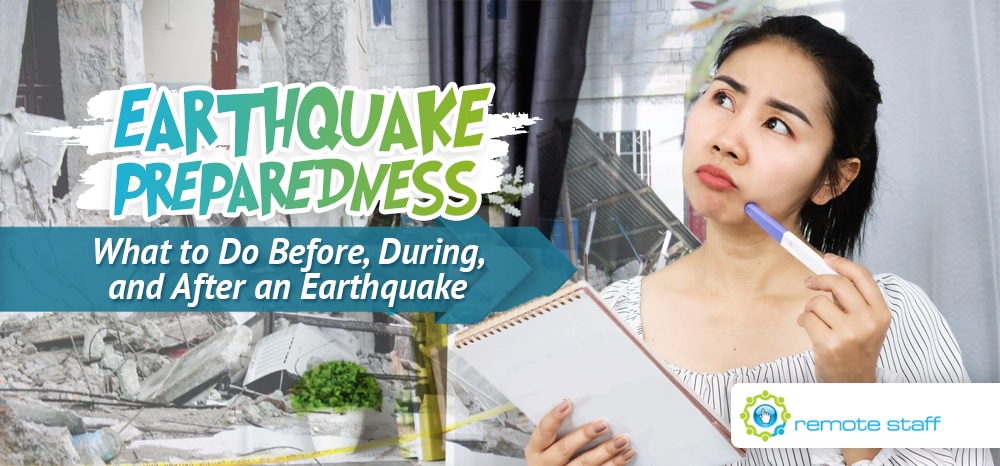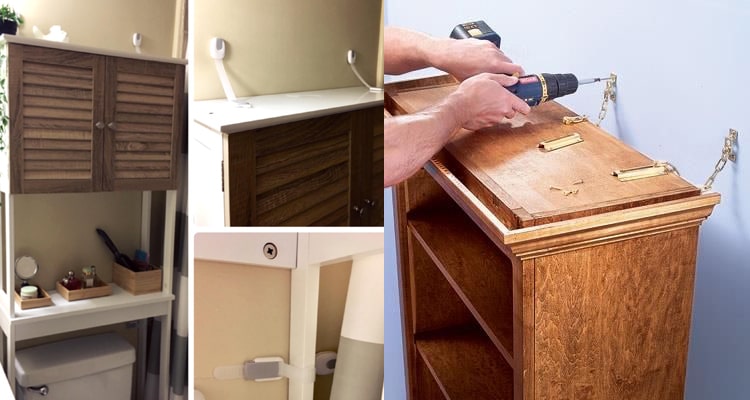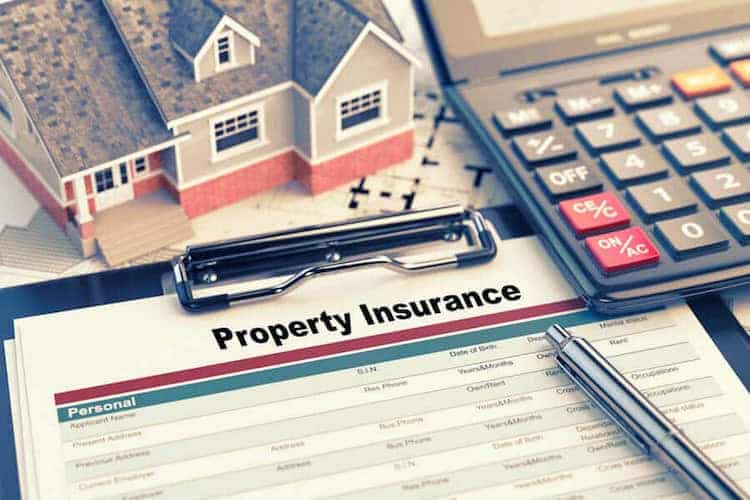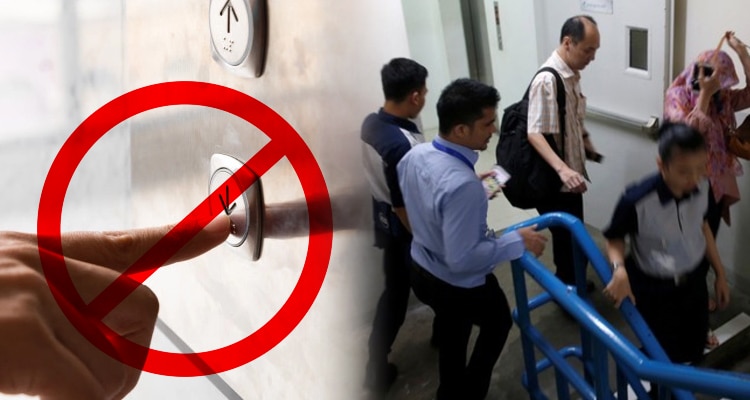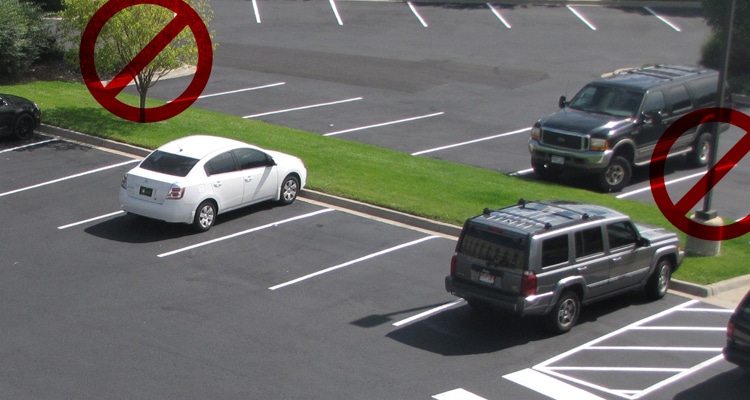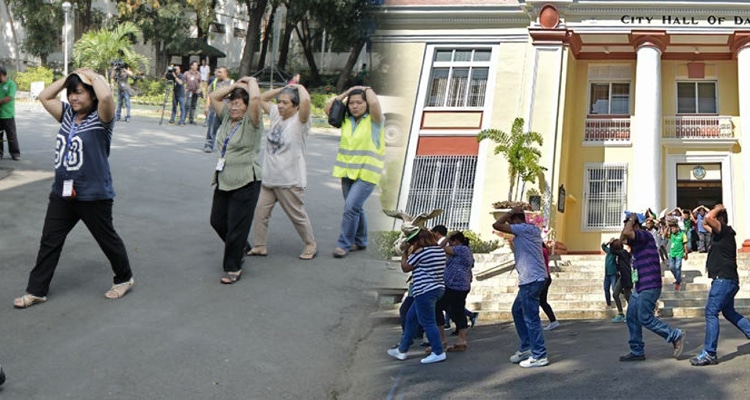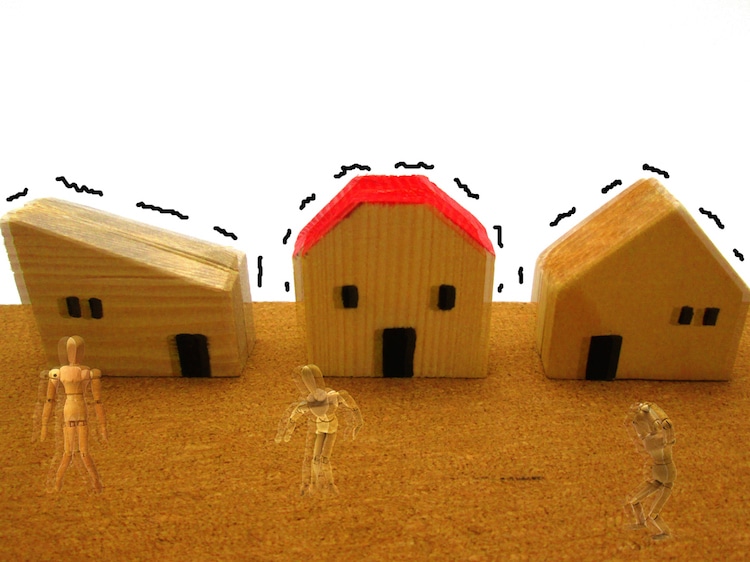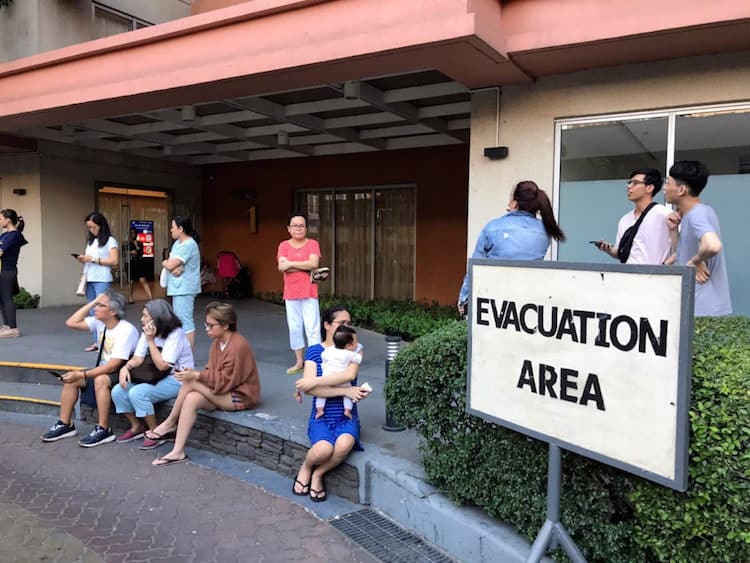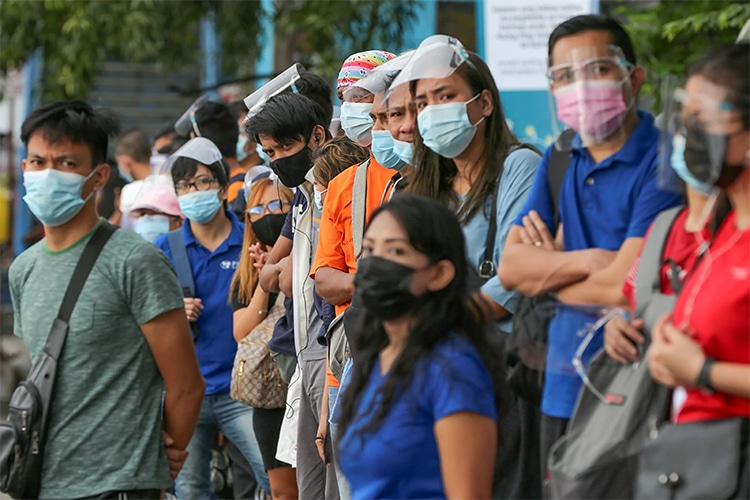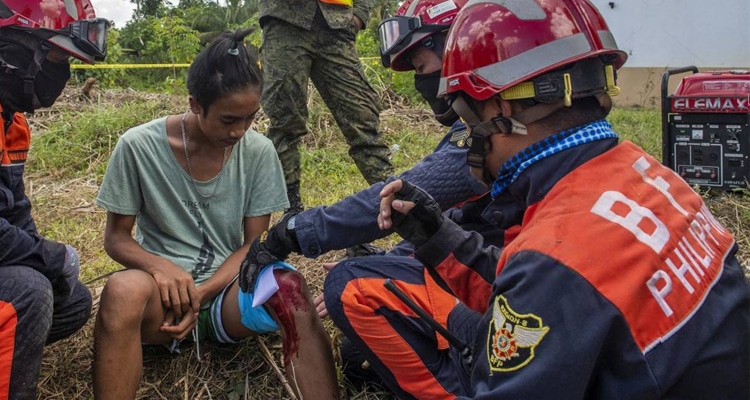We can’t predict when natural disasters will happen. And with the geographical location of the Philippines, we’re pretty much prone to typhoons and earthquakes. After all, we’re part of the pacific ring of fire with about 300 volcanoes, of which 22 are active.
Right now, we are facing earthquake warnings across the country. As of writing, a 6.7 magnitude earthquake hit Luzon, followed by a 5.8 magnitude aftershock. To top it all off, an alert level 2 is raised for Taal Volcano.
No heavy casualties were reported. But we must be ready when it happens again. So here is what to do before, during, and after an earthquake.
Before the Earthquake
As the saying goes, “by failing to prepare, you are preparing to fail.” And it also applies to disaster preparedness. What do you need to do before the earthquake? Here are some preparations you can make.
Know the Risks in Your Area
The first step is to know the risks in your area. Are you near any fault lines? Do you live near the sea? Are there any volcanoes in the vicinity?
You should know this information to assess the likelihood of natural disasters from seismic activities. How? You can check the Phivolcs website for any advisory. You can also check this nifty website https://hazardhunter.georisk.gov.ph/ for a risk assessment in your area.
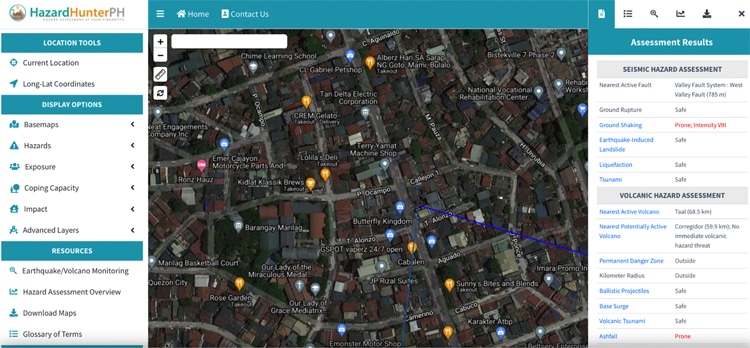
You will get a result similar to this. It will have risk assessments from earthquakes, volcanoes, and landslides due to typhoons.
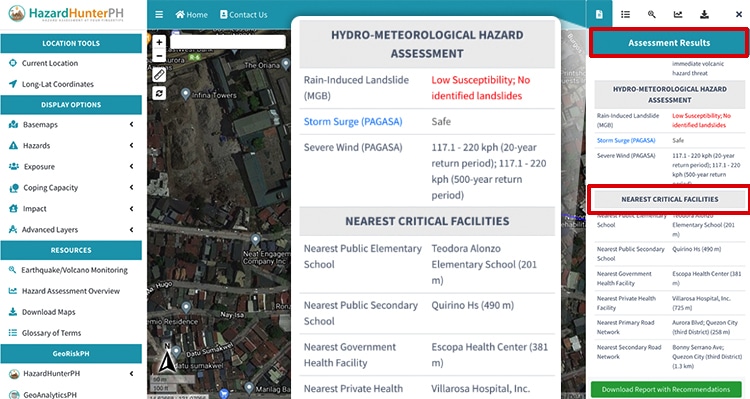
You can also see the critical facilities you can go to just in case something happens.
Emergency Plan
After knowing the risks, the next step is to create an emergency plan. What to do when an earthquake occurs? Where do you hide? What do you do after? What should you be checking? It should be written down in an emergency plan and discussed with your family.
If you’re living in a building, know the fire exit and safety areas. If you have your own house and lot, know the section of your home where it’s safer to stay during and after the earthquake.
Also, have an emergency kit with the following items to be prepared. Alongside this, get the contact information of the nearest hospitals and government agencies that are relevant for the disaster. Better safe than sorry.
Reinforce Furniture, Appliances, and Fixtures in Your House
During an earthquake, furniture, appliances, and fixtures might be damaged. Or worse, it can even cause harm to your family. It’s best to reinforce these areas and items before any calamity happens. Here are some:
- Reinforce bookcases and china cabinets with flexible fasteners such as nylon straps which will allow it to sway without falling.
- Next is to prevent cabinets from opening. Use latches such as child-proof latches or hook-and-eye latches to secure them in place. It will prevent the items inside from falling to a person during the earthquake.
- If you have wall decor or hanging picture frames, closed hooks can be used to secure them to the wall. You can use more hooks depending on the size of the decor.
- For books on a bookshelf, you can use a thin strip of wood or string to keep them from falling over.
- For display items and figurines, you can use museum wax or gel to keep them in place.
Property Insurance
In the worst cases, you don’t want your hard-earned money to go to waste. It might be best to purchase property insurance to avoid financial perils. It can go as low as 1200 PHP, depending on the risks.
During the Earthquake
Now that you are prepared, what do you do when the calamity happens? Here are some safety tips.
Inside a Building or House
If you’re inside, stop what you’re doing and practice drop-cover-hold. If you see a sturdy object like a table, drop, take cover under it, and hold the table. Check the video below for a demonstration.
If you don’t have any objects to hide under, go to a safe part of the building near the center. Avoid windows and outside doors. And then, drop, cover, and hold your head and nape.
Do Not Use Elevators
You might want to leave the building when an earthquake happens. You can do this after the shaking stops. But don’t use the elevator. An elevator runs on electricity, and it can shut down when an earthquake happens. You don’t want to be stuck in it.
If, for some reason, you are in an elevator during an earthquake, you should push all the buttons on the nearest floors and get out immediately. Please use the staircase for more safety.
Inside a Car
If you’re inside a car, drive slowly, stop, and pull over. Make sure to park in an open area as soon as possible. Also, avoid parking near trees, bridges, powerlines, and other structures that might fall onto your car.
Outside
If you’re left outside during an earthquake, it’s best to go to an open area like a parking lot or park. Also, look into your surroundings and check if there are any structures that might fall. Examples are powerlines and trees. Avoid those areas to be safe from harm.
After the Earthquake
Are we safe after the earthquake? Not quite. It’s too early to let your guard down. Here are some things you should do after the earthquake.
Expect Aftershocks
Not every earthquake ends with just one shaking. Just the last one as of date, the 6.7 magnitude earthquake was followed by a 5.8 magnitude one after a few minutes. Do not be complacent after. It’s now the time to secure your family out of danger.
Go to a Safer Place
With the risks of your area in mind, it’s time to evacuate to a safer place. If your vicinity is prone to Tsunamis, it’s best to go up to a higher location. Be ready and still apply drop-cover-hold in the event of an aftershock.
Practice COVID Safety
Amidst the catastrophe, we are still exposed to the pandemic. You have touched a lot of surfaces and objects. It’s best to wash your hands and use a face mask while evacuating to a safer place. We must not only be safe from the earthquake but also COVID19.
Medical Attention
Some of your family members might be hurt or injured after the earthquake. It’s time to give them medical attention and first-aid. Use your emergency kit to apply the needed medication for them.
For severe complications, you should contact the nearest hospitals you can for immediate care.
Listen to the News Advisory
We don’t know what else we should be wary of. After the earthquake, you should tune in to reliable sources of information like news websites, social media, and radio channels. In this way, you would know what to do next or if there are any impending dangers after the earthquake.
Conclusion
With proper preparation, we can all be protected from impending danger during earthquakes. Practice the tips above and ensure safety for you and your family. Cheers!

